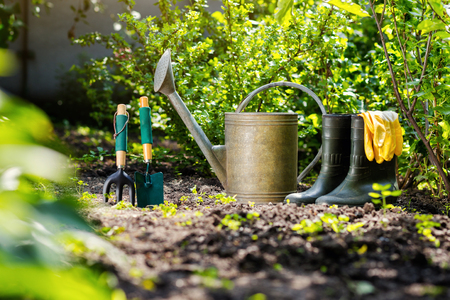Introduction: Why Garden Chemical Safety Matters in the UK
Gardening is a cherished pastime across the United Kingdom, bringing life and beauty to both private and public spaces. Many gardeners rely on chemical products such as pesticides, herbicides, and fertilisers to keep their gardens healthy and vibrant. However, the use of these chemicals comes with significant responsibilities, especially when it comes to protecting local wildlife. Hedgehogs, in particular, are iconic residents of British gardens but are increasingly at risk due to improper chemical use. Understanding which garden chemicals are commonly used, their potential impact on wildlife, and why careful management is crucial can help gardeners maintain both beautiful and environmentally safe outdoor spaces. This article explores the importance of garden chemical safety in the UK, focusing on how British regulations and best practices can protect vulnerable creatures like hedgehogs.
UK Regulations for Garden Chemical Use
In the United Kingdom, the use of garden chemicals such as pesticides and herbicides is strictly regulated to protect both people and wildlife, including hedgehogs. The law ensures that anyone applying these chemicals in a domestic or public garden setting follows specific rules designed to minimise harm. Below is a summary of the main legal requirements and guidelines every British gardener should know:
Key Legal Requirements
| Regulation/Guideline | Description |
|---|---|
| Product Approval | Only chemicals authorised by the Health and Safety Executive (HSE) can be used. Products must display a valid approval number on the label. |
| User Responsibility | Gardeners must read and follow all instructions on the product label, including safe storage, application rates, and disposal methods. |
| Wildlife Protection | The Wildlife and Countryside Act 1981 makes it illegal to knowingly harm protected species such as hedgehogs. Care must be taken to avoid contaminating food sources or habitats. |
| Pesticide Application | Chemicals should not be applied near water sources, drains, or in windy conditions to prevent contamination and drift. |
| Record Keeping (for Professionals) | If gardening professionally, records of pesticide use must be kept for at least three years according to UK law. |
Restrictions on Common Chemicals
Certain substances have been banned or restricted for use in gardens due to their harmful effects on wildlife. For example, products containing metaldehyde (previously common in slug pellets) are no longer permitted because of their risk to hedgehogs and other animals. Always check for up-to-date lists of approved products from official government sources before purchasing or using any chemical in your garden.
Your Responsibilities as a Gardener
As a home gardener in the UK, you are legally responsible for ensuring any chemical you use does not cause unnecessary harm to wildlife, pets, or humans. This includes proper storage away from children and animals, never exceeding recommended dosages, and disposing of leftover chemicals safely at designated collection points.

3. Identifying Hedgehog-Safe and Hazardous Chemicals
When choosing garden chemicals, understanding product labels is essential for hedgehog safety. British regulations require clear labelling of hazardous substances, so always check for warning signs such as “harmful to wildlife,” “dangerous to pets,” or pictograms indicating toxicity. Slug pellets containing metaldehyde are known hazards for hedgehogs, while products with ferric phosphate are considered less risky. Read the active ingredients section closely and avoid pesticides or weed killers with neonicotinoids or carbamates, as these can be particularly dangerous.
Look for labels that mention being “pet-safe” or “wildlife-friendly.” The RHS (Royal Horticultural Society) and Wildlife Trusts often recommend natural alternatives like neem oil, soap-based insecticides, or homemade vinegar sprays which pose minimal risk to hedgehogs. If you’re unsure about a chemical’s impact, consult the manufacturer’s website or contact your local council’s environmental team for advice.
By selecting products certified by UK environmental standards and prioritising organic or biological controls, you help create a safer habitat for hedgehogs. Remember: even if a product seems harmless to humans, it can have unintended consequences for vulnerable garden visitors like hedgehogs.
4. Practical Tips for Safe Application in British Gardens
Step-by-Step Guidance for Responsible Chemical Use
Caring for your garden while protecting local wildlife, such as hedgehogs, means using garden chemicals with thought and responsibility. Here is a practical guide tailored to UK regulations and best practices.
Step 1: Choose the Right Product
Select chemicals that are approved for use in the UK and look for labels that mention low toxicity to wildlife or are labelled as “hedgehog friendly”. Always read the label thoroughly before purchase and use.
Step 2: Plan the Timing
| Task | Best Practice |
|---|---|
| Application Time | Apply in early morning or late evening to reduce exposure to non-target species, especially when hedgehogs are least active. |
| Weather Conditions | Avoid windy days (to prevent drift) and rainy periods (to avoid run-off into soil and water sources). |
Step 3: Prepare and Apply Carefully
- Wear gloves and protective clothing as per product instructions.
- Measure doses precisely to avoid over-application.
- Keep children, pets, and especially hedgehogs away from treated areas until dry or as instructed on the label.
- Avoid spraying near hedgerows, log piles, or compost heaps where hedgehogs may shelter.
Step 4: Safe Storage
Store chemicals in their original containers, tightly sealed, out of reach of children and animals. Keep them in a cool, dry shed or locked cupboard, following all safety instructions on the label. Never decant chemicals into unlabelled bottles.
Step 5: Responsible Disposal
- Never pour leftover chemicals down drains or onto bare ground.
- Take unused chemicals to your local council’s hazardous waste facility as per UK guidelines.
- Rinse empty containers three times, add rinsings to your sprayer tank, then dispose of containers according to the label or through council schemes.
By following these steps, you can keep your garden healthy while ensuring that hedgehogs and other local wildlife stay safe. Responsible chemical use not only meets British standards but also helps preserve biodiversity in your community.
5. Alternative Methods: Wildlife-Friendly Weed and Pest Control
For gardeners wishing to protect both their plants and local wildlife such as hedgehogs, there are several natural and mechanical alternatives to chemical treatments widely used in the UK. These methods support a healthy garden ecosystem while ensuring compliance with British regulations on wildlife protection.
Manual Weeding and Mulching
Hand-pulling weeds is highly effective and poses no risk to hedgehogs or other creatures. Regularly removing unwanted plants by hand can keep your beds tidy without introducing harmful substances. Additionally, applying organic mulch (such as bark chippings or well-rotted manure) helps suppress weed growth while improving soil quality, making it an ideal choice for eco-conscious gardeners.
Encouraging Natural Predators
British gardens benefit from a variety of native predators that help control pests naturally. Birds, frogs, and even hedgehogs themselves feed on slugs, snails, and insect larvae. Installing bird feeders or providing log piles encourages these helpful animals to visit your garden regularly, offering a sustainable form of pest management.
Companion Planting Techniques
Companion planting involves positioning certain plants together to deter pests. For example, marigolds can repel aphids and nematodes, while garlic planted near roses may ward off greenfly. These time-honoured methods not only reduce the need for chemicals but also create a more visually appealing landscape.
Physical Barriers
Barriers like copper tape around pots deter slugs without using pellets that could harm hedgehogs. Fine mesh netting protects crops from birds and insects while allowing air flow. Always ensure any barriers are checked regularly so hedgehogs do not become trapped or injured.
Homemade Natural Sprays
If infestations persist, consider homemade remedies such as diluted soap spray or a mixture of vinegar and water for spot-treating affected plants. These solutions are far less hazardous than conventional pesticides and break down quickly in the environment, posing minimal risk to wildlife.
By adopting these alternative approaches, UK gardeners can maintain thriving, beautiful spaces while safeguarding cherished species like the hedgehog—demonstrating that nature-friendly gardening is both achievable and rewarding.
6. Spotting and Assisting Affected Hedgehogs
How to Recognise Signs of Chemical Exposure in Hedgehogs
Hedgehogs are particularly vulnerable to garden chemicals, and early detection of poisoning can make a significant difference. Common signs of chemical exposure include confusion, disorientation, lethargy, excessive drooling, tremors, or seizures. You may also notice unusual behaviour, such as stumbling, struggling to curl up, or appearing unusually approachable and unafraid of humans. In some cases, affected hedgehogs might have visible burns on their skin or a strong chemical smell. If you see any of these symptoms, it is important to act promptly.
Immediate Steps You Can Take
If you suspect a hedgehog has been exposed to garden chemicals, wear gloves before handling the animal to protect both yourself and the hedgehog. Gently place the hedgehog in a secure cardboard box lined with an old towel. Keep the box in a quiet, warm place away from pets and children. Avoid offering food or water unless instructed by a wildlife expert, as this could worsen certain conditions.
Seeking Local British Wildlife Rescue Support
Contact your nearest wildlife rescue centre or hedgehog hospital as soon as possible. In the UK, organisations such as the British Hedgehog Preservation Society (BHPS) provide advice and support for distressed or poisoned hedgehogs. Many local rescues can be found through directories online or via your local council’s website. When calling for help, be ready to describe the hedgehog’s symptoms and what chemicals may have been used in your garden recently. Prompt professional care gives hedgehogs the best chance of recovery and helps ensure our gardens remain safe havens for these much-loved native creatures.


